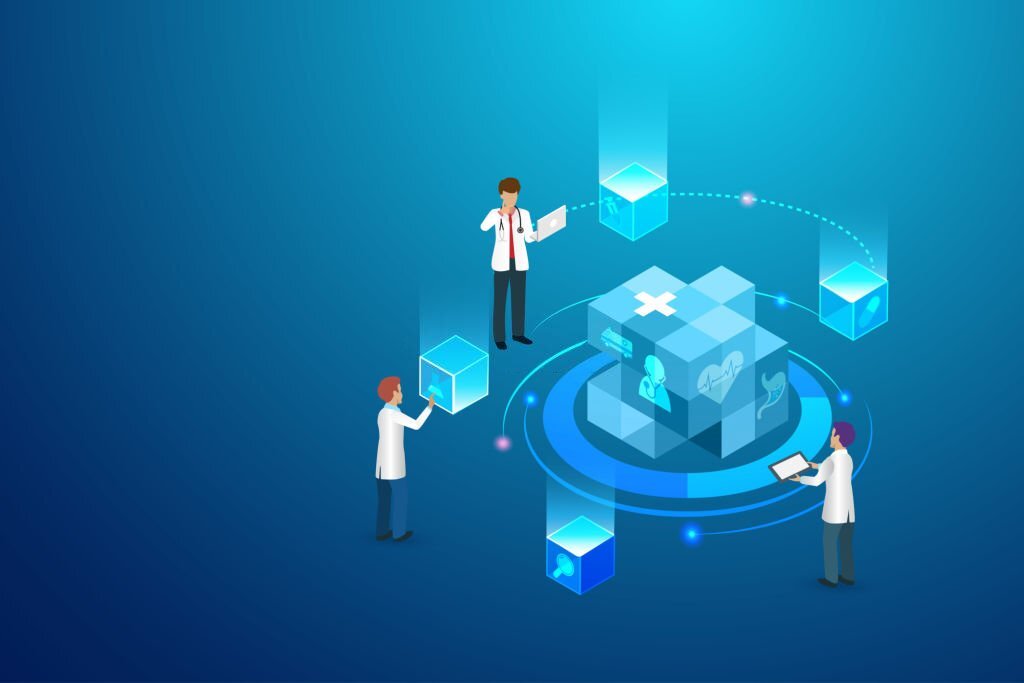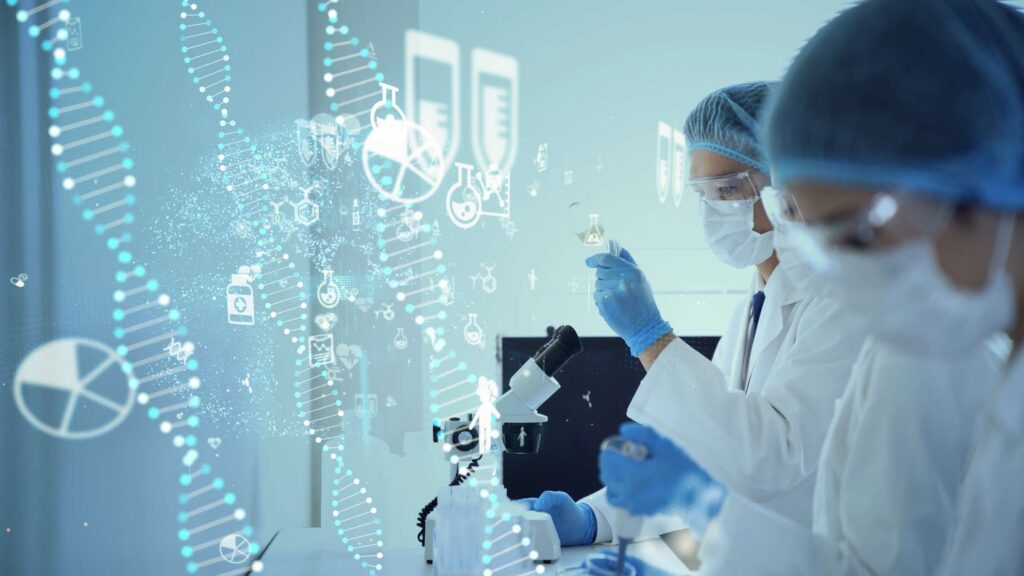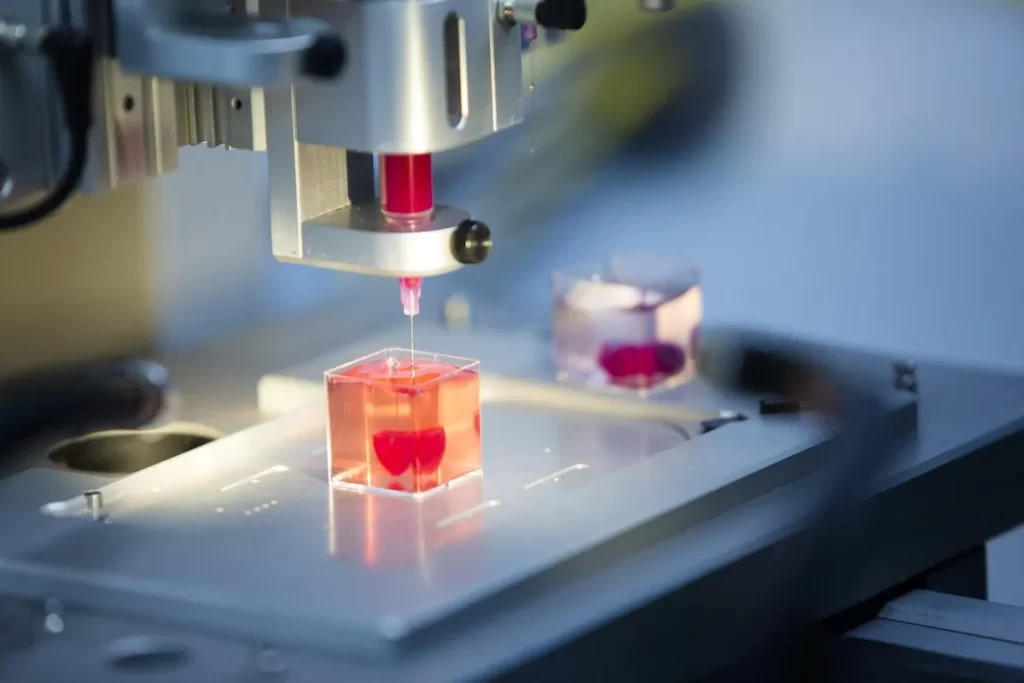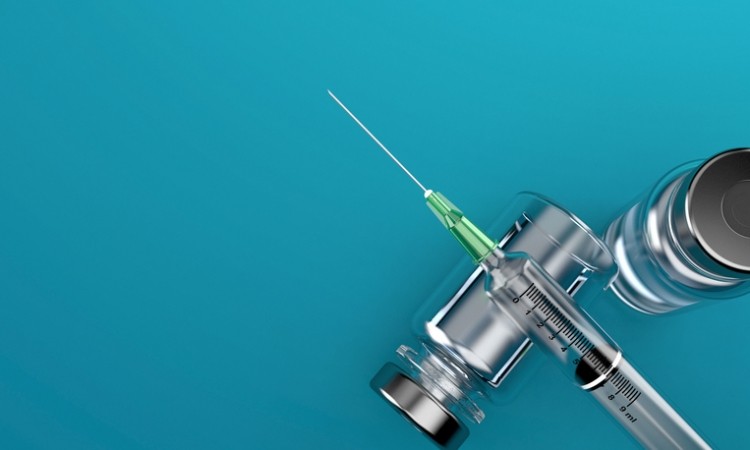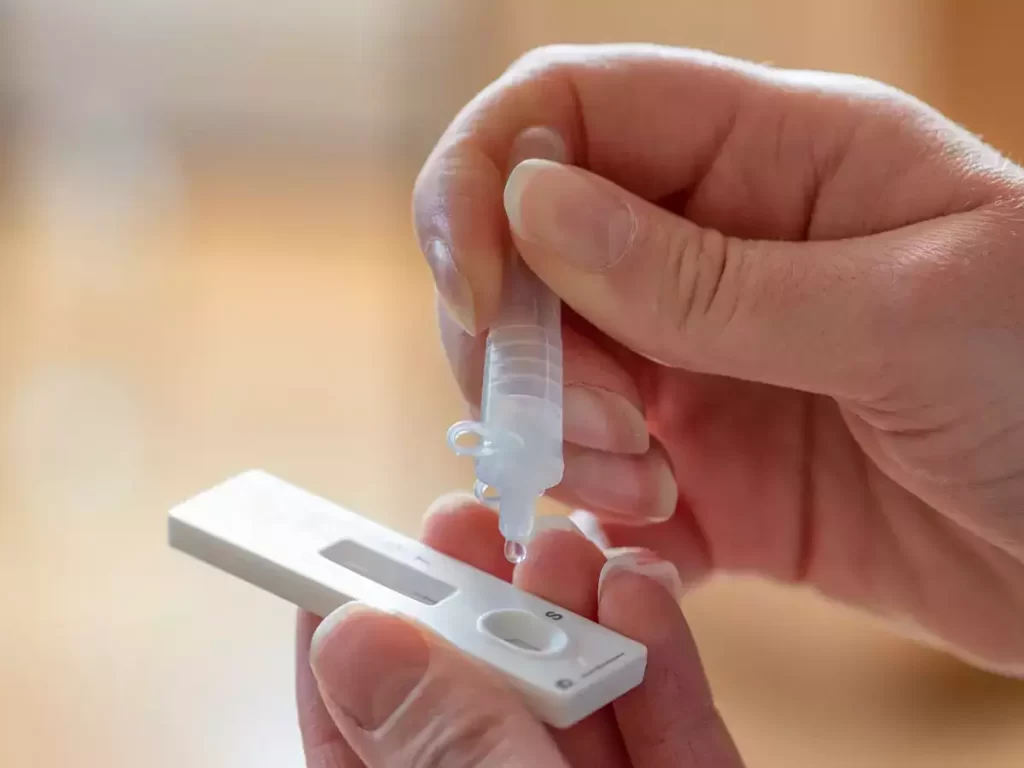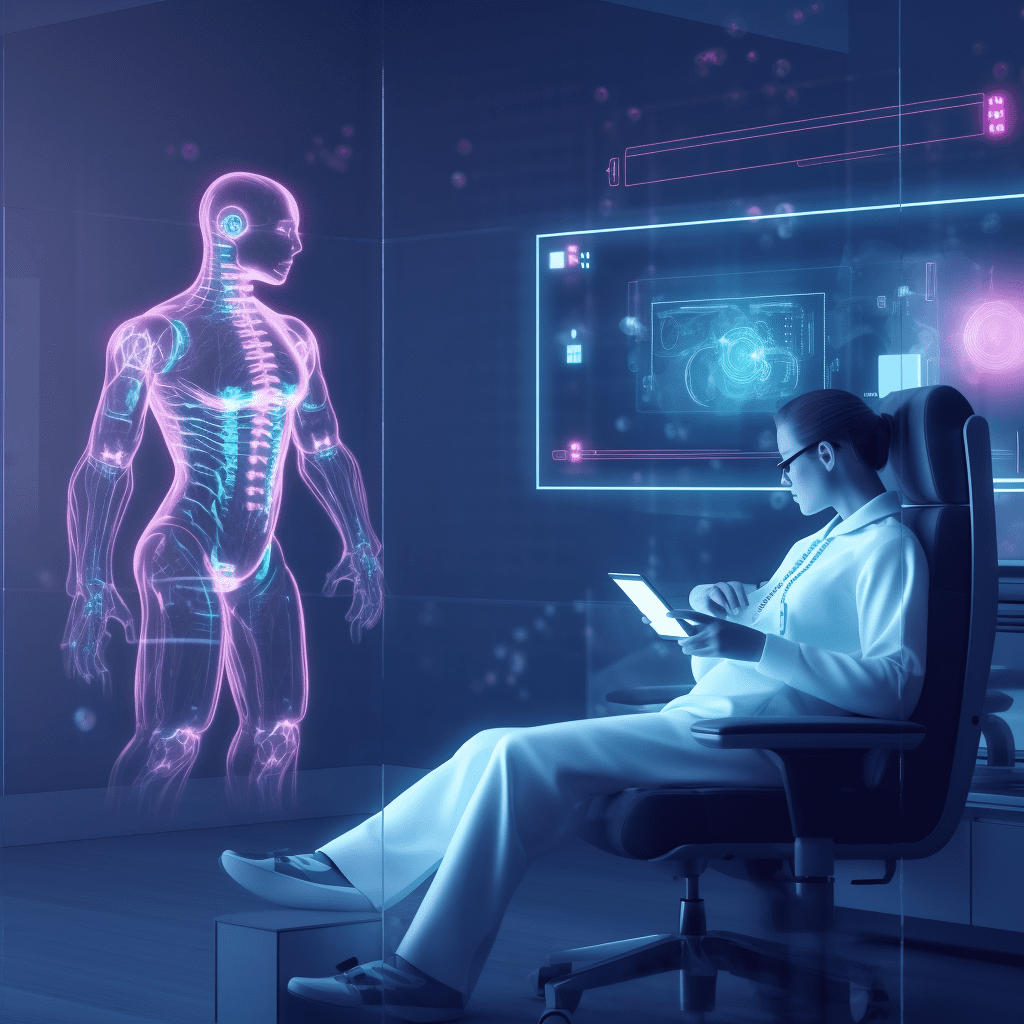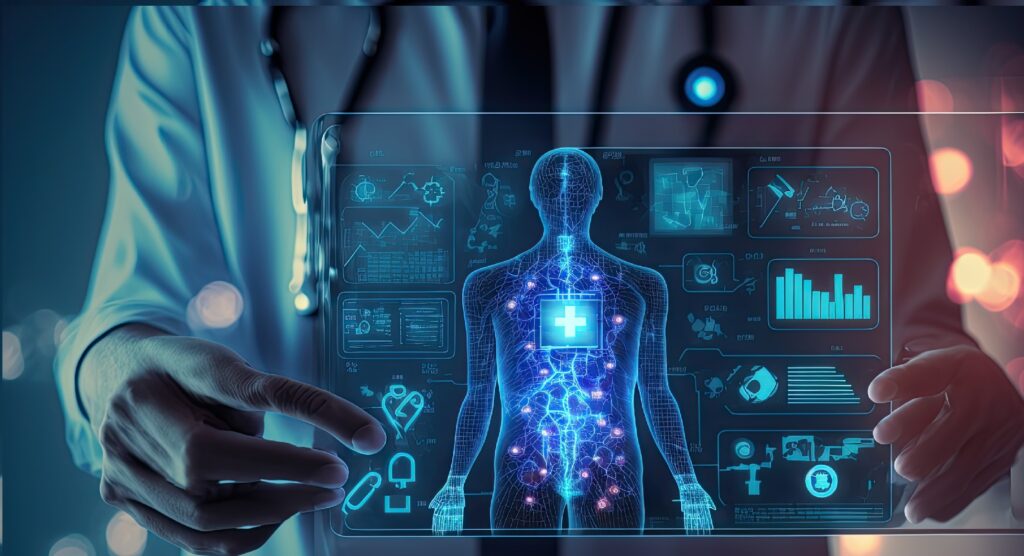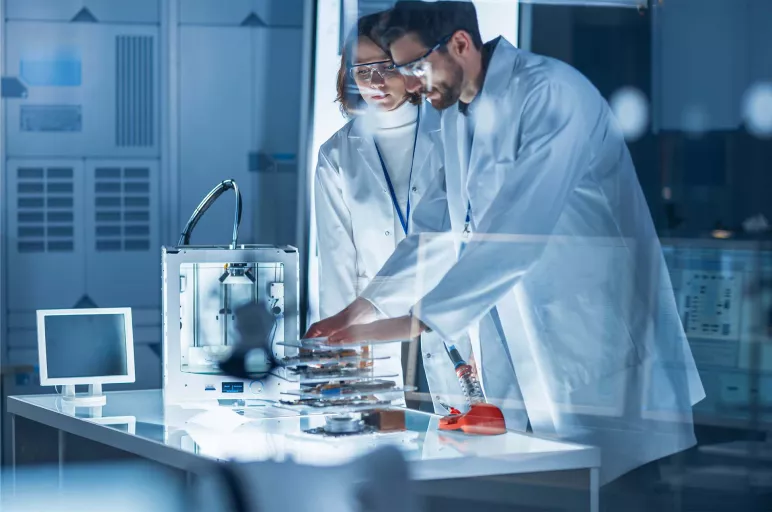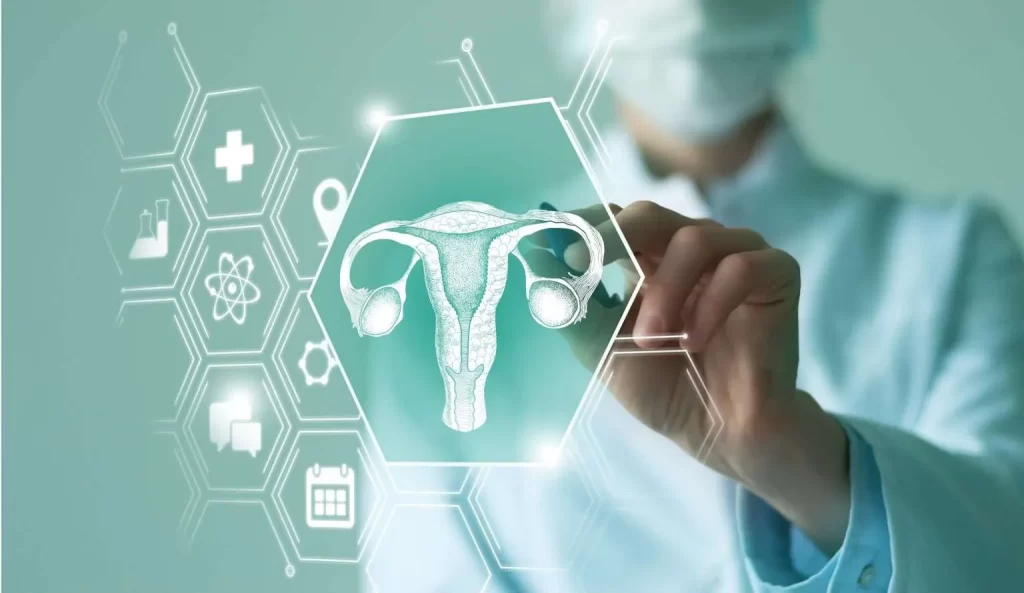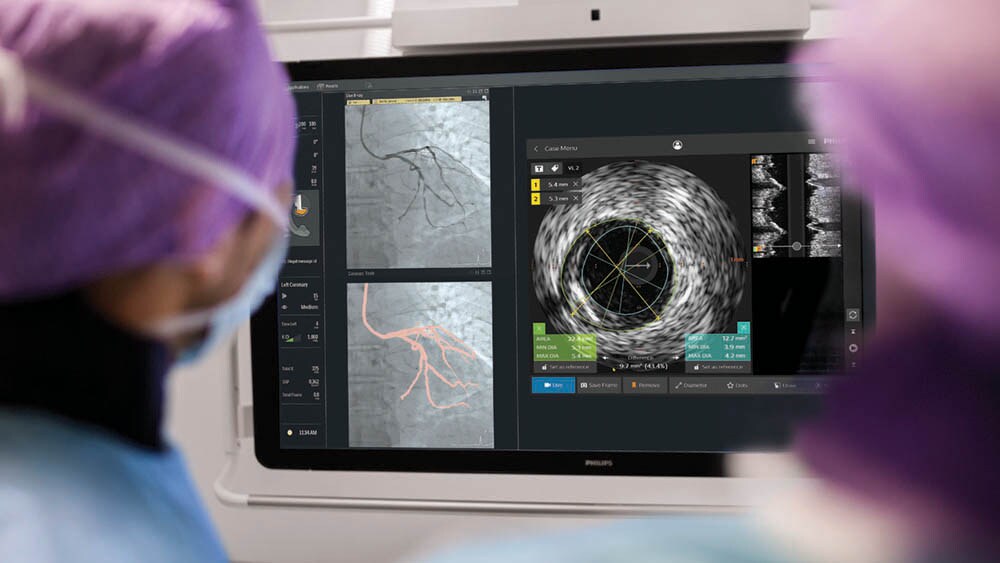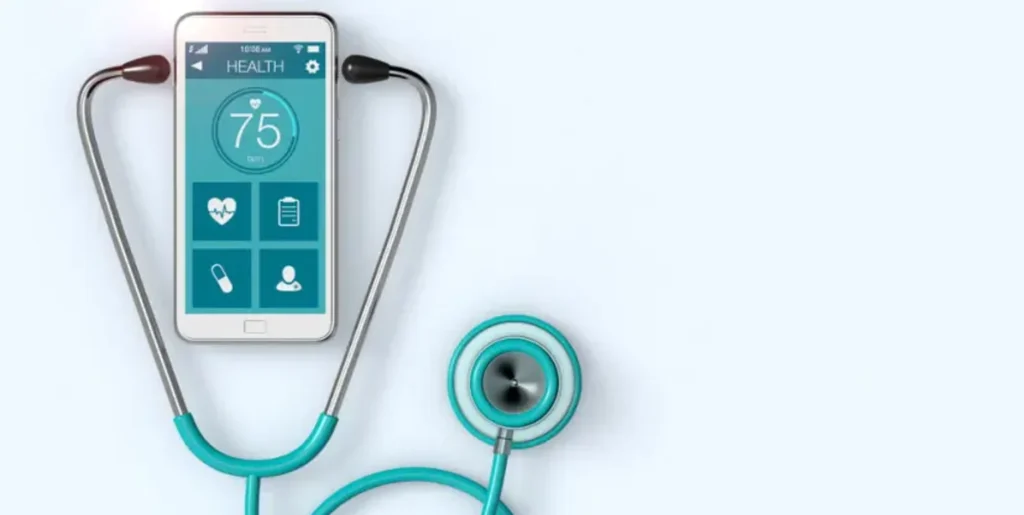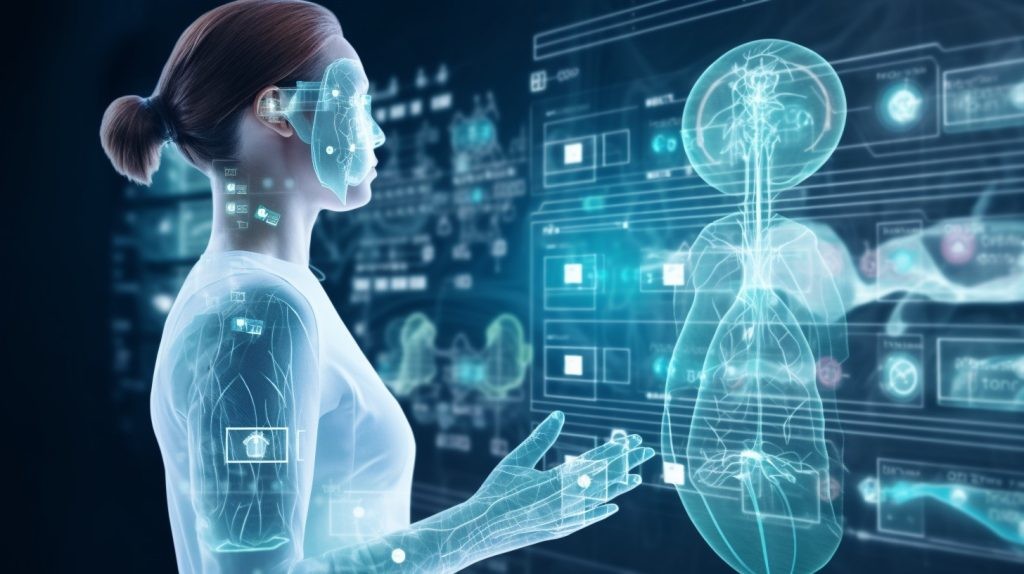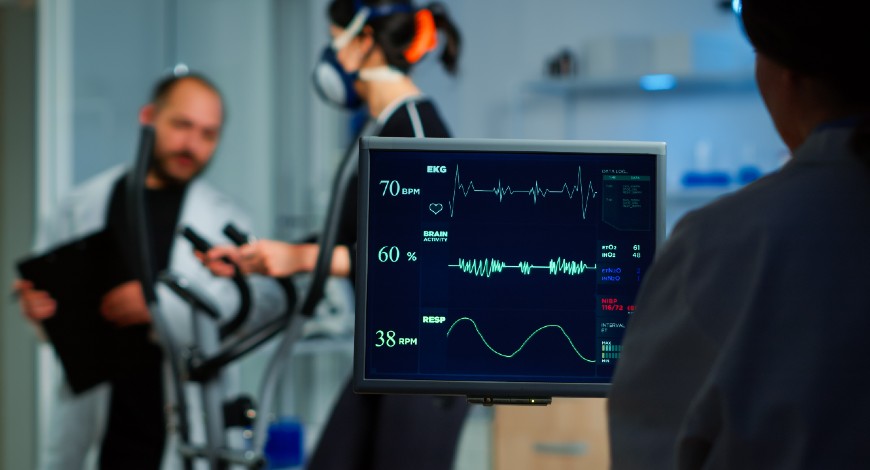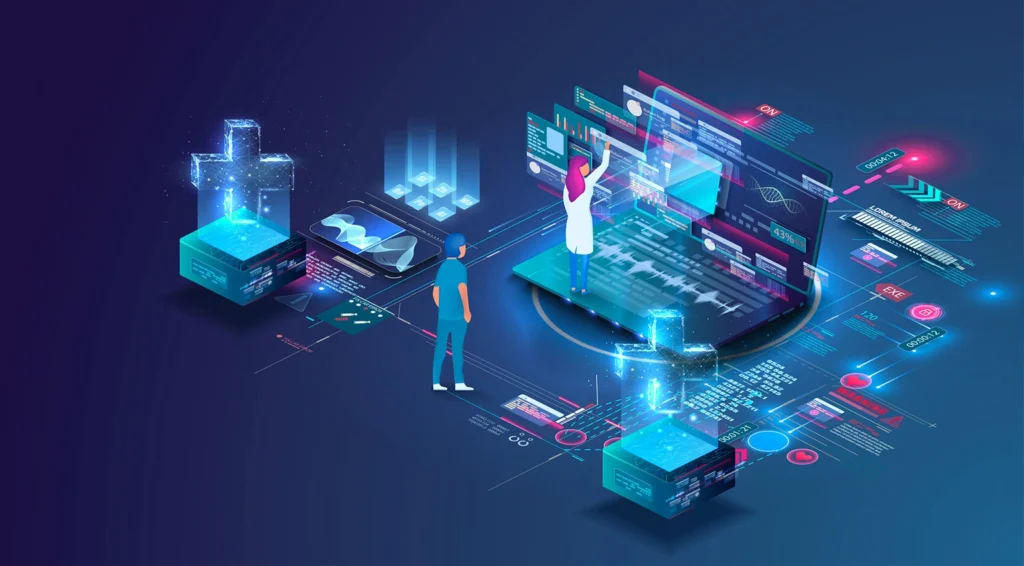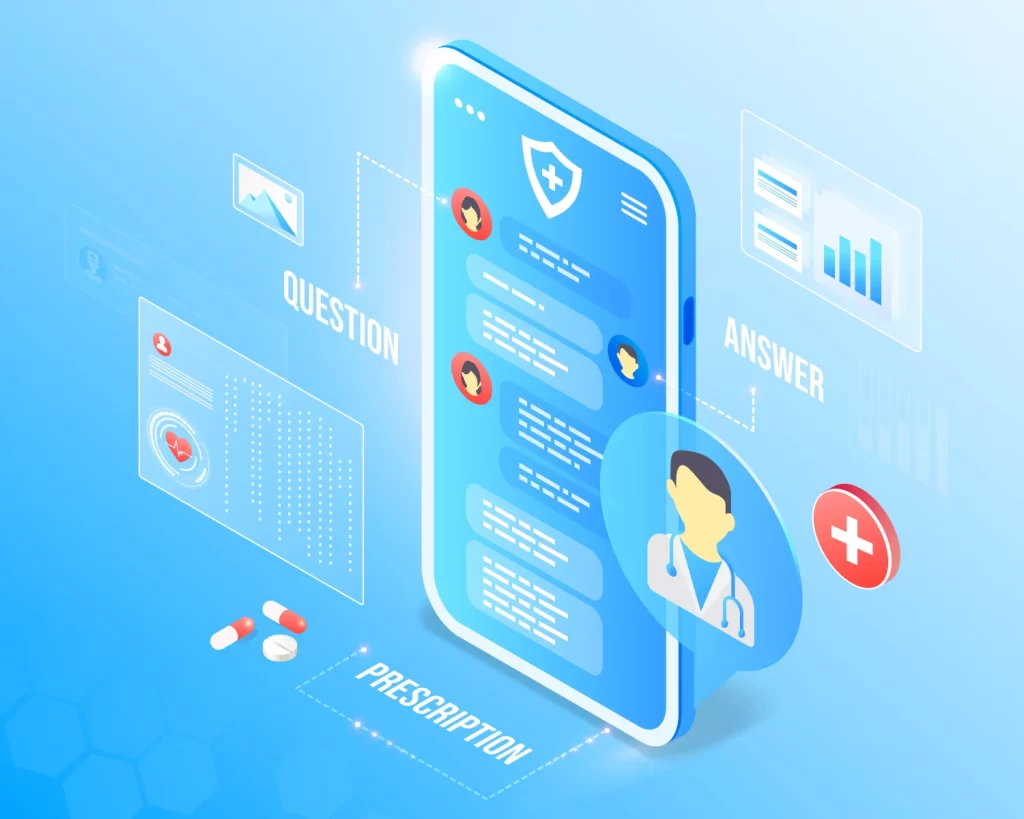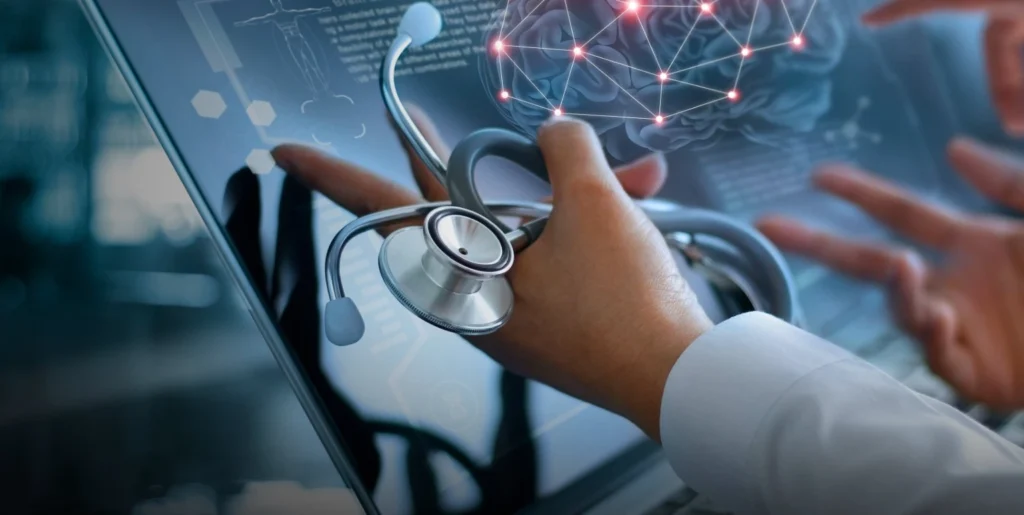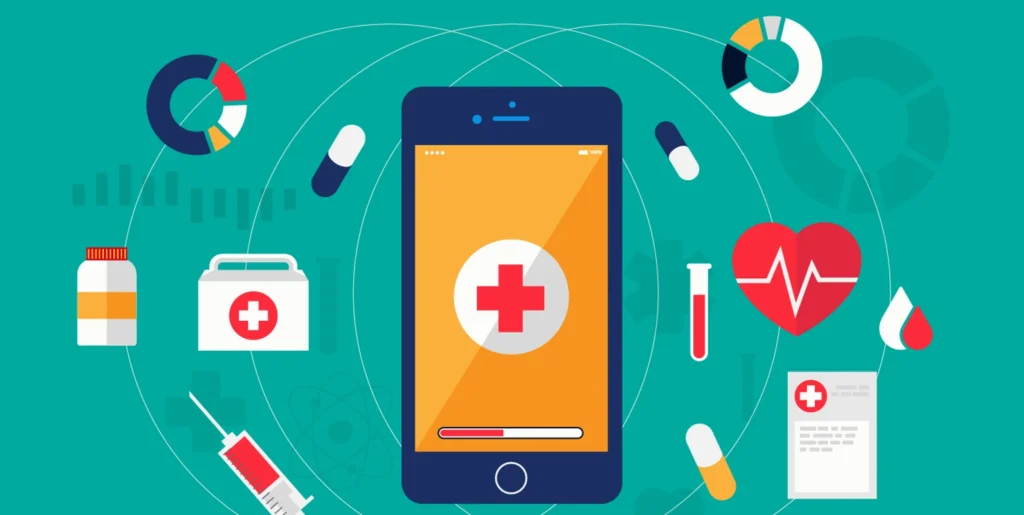The Potential Impact of Artificial Intelligence on Healthcare:

The use of AI and machine learning by the industry to generate new revenue streams and increase productivity is still in its infancy.
- AI and machine learning are going to change the medical field.
- The potential of AI to increase productivity and generate new income has not yet been completely realized by the industry.
- At the forefront are biopharma, medical technology, life sciences tools and diagnostics, health care services, and technology.
Numerous industries are already seeing significant changes due to artificial intelligence and machine learning (AI/ML), and the health care industry is no exception. Although AI/ML is being used extensively in the industry, it has not yet realized all of its promise in terms of creating new business prospects and efficiencies.
94% of healthcare organizations responded to a recent Morgan Stanley Research survey by saying they use AI/ML in some form. In the meantime, it is anticipated that the industry will spend an average of 10.5% of its forecast budget on these technologies by 2024, up from 5.7% in 2022.
Investors should specifically watch for AI/ML to significantly expand prospects in four areas:
- Biopharma
- Health care services and technology
- Life sciences tools and diagnostics
- Medical technology
Devices Get Smarter
Companies that interact with patients early on in the healthcare process are well-positioned to reap the benefits of AI without facing significant disruptions. In addition to diagnoses, monitoring technology is another interesting area for investment. The use of data gathered from devices to identify anomalies and recommend treatments is known as medical technology, or medtech. Artificial intelligence (AI) has the potential to assess the vital signs and results of patients’ preventive screenings in order to discover, recommend treatments, and continually monitor neurological, cardiac, and blood sugar health.
Longer term, knee or hip implants with sophisticated sensors would enable clinicians to track patients’ healing.
According to analysts, the primary markets for utilizing AI include robotics and diagnostics; medical devices that are used in the early phases of patient interactions, such as continuous glucose monitoring, cardiac monitoring, and neuromonitoring; and diagnostics.
Only 24% of medical devices presently include AI/ML technology, but there is still a lot of possibility, according to Morgan Stanley’s Health Care Research team. They believe that larger businesses appear to be more equipped to invest in training and deploying AI innovation, as well as to gather proprietary data sets at scale.


